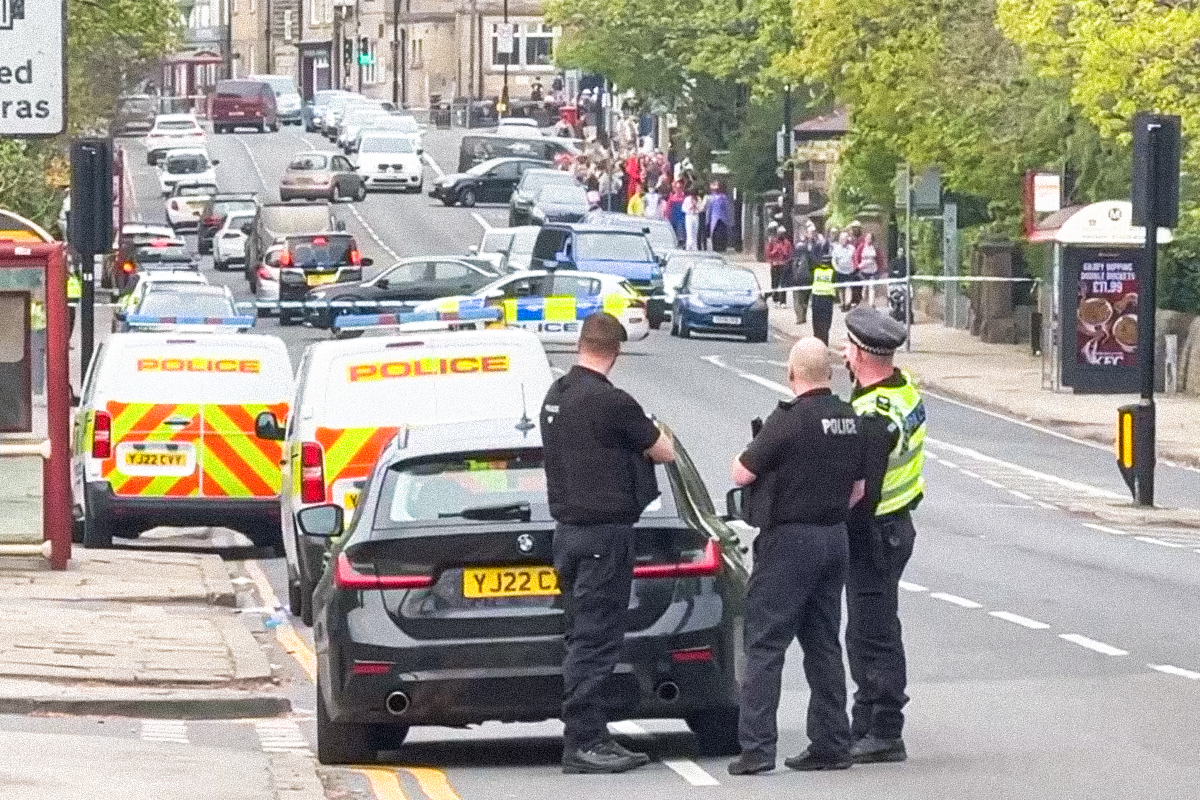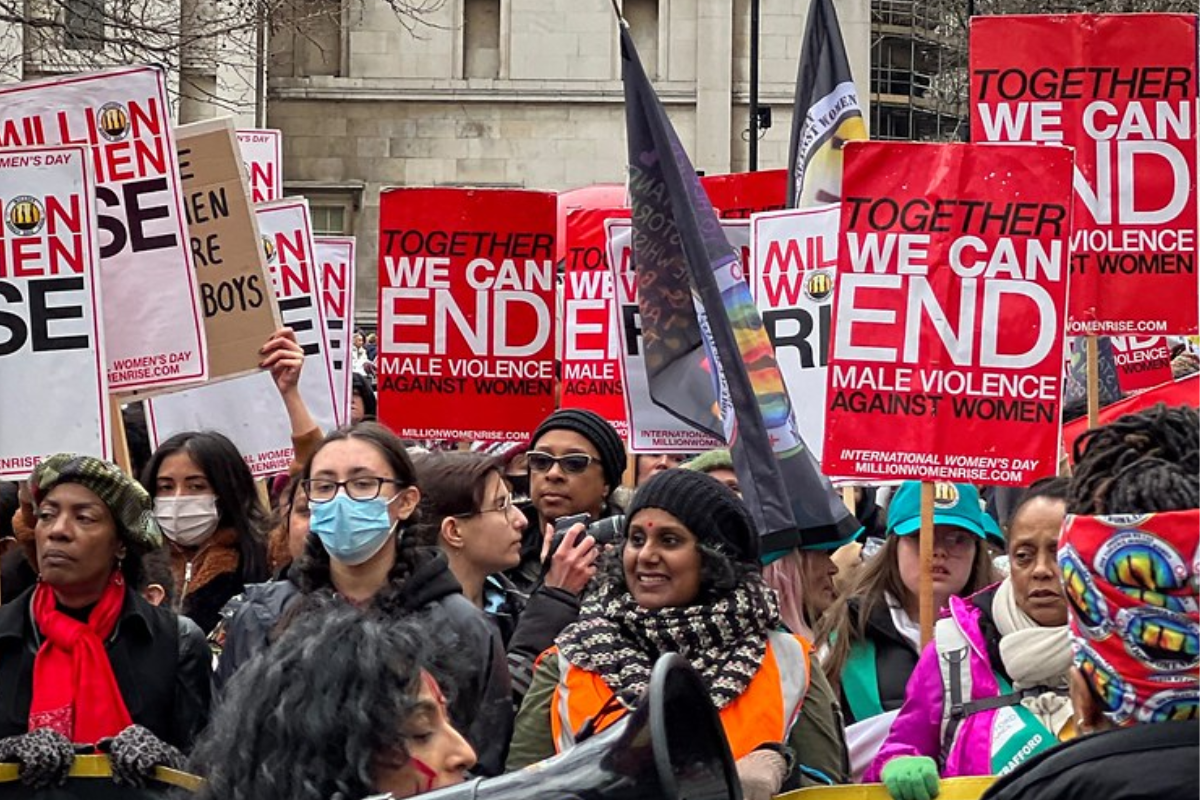Quarantine is a living nightmare for those facing domestic abuse. Yet again, it is the most vulnerable in society who are suffering the hardest during this crisis. Capitalism cannot provide safety for ordinary people.
The coronavirus pandemic has brought a wave of challenges for all countries it inflicts. Some of the most vulnerable in our society are bearing the brunt of the hardships faced.
The economy is facing a depression comparable to the 1930s. And the contagion has led to mandatory lockdowns for extended periods of time. The uncertainty and unpredictability of these times creates a new sense of fear for many. Millions have already lost their jobs, their livelihoods, and their loved ones as a result of this ongoing crisis.
This level of fear and daily anxiety over one’s own safety, however, is not a new feeling for those who have experienced domestic abuse.
Such victims are all too familiar with the unforeseeable threats to their wellbeing; with staying locked indoors, not knowing when they will be allowed out; and with their mental health being hounded by emotional and psychological abuse.
These same people are now falling victim to the coronavirus: forced to self-isolate with their abuser(s) in their homes – a place where we are told that we are meant to be safe.
Cry for help
According to the annual Femicide Report released in the UK, around two women die at the hands of their current or former partners every week. In the first three weeks of lockdown, however, around 14 women and two children were murdered – a significant increase on the already harrowing statistics seen before the outbreak.
Unfortunately, the surge of violence is not concentrated in the UK alone. In China’s Hubei province – the centre of the initial COVID-19 outbreak – domestic abuse reports to the police tripled during the lockdown in February.
India’s National Commission for Women (NCW), on 17 March, said it had registered 587 domestic violence incident reports between 23 March (when the lockdown began) and 16 April – a significant surge from the 396 phone calls received in the previous 25 days.
Since 23 March, a woman has been murdered every 29 hours in Argentina. And the already alarming femicide rate in Mexico has almost quadrupled under the quarantine, which imposes dangerous conditions on those in violent relationships or abusive family homes.
Domestic violence has been rising from day one of the COVID-19 pandemic. In China’s Hubei province “reports tripled.” In France, domestic abuse up 36 per cent. In the UK, 25 per cent. “We have learned the recent mass killings in Nova Scotia began with a domestic assault.” https://t.co/MGjB0POR4q
— Nahlah Ayed (@NahlahAyed) April 25, 2020
The reports are horrifying. The National Domestic Violence Helpline reported that they have seen a 120% increase in the number of calls received in one 24-hour period. And many cases are not reported to the police at all.
These figures highlight the increasing pressure that is placed on vital support services helping those looking to escape from domestic abuse, with many more women now crying out for help.
Bleak landscape
In its daily press conferences, the Tory government has highlighted the shocking statistics that reveal the surge in domestic violence since the start of the lockdown. Home secretary Priti Patel “insists” that help for all victims is available, with £2 million in funding. And on Twitter, trending hashtags such as #YouAreNotAlone are intended to comfort the nation and to show so-called ‘solidarity’ with victims.
Good to see such proactive policing from @MetPoliceUK. We have not forgotten about those at risk from domestic abuse and we will ensure perpetrators are brought to justice #YouAreNotAlone https://t.co/chXyF5BOxl
— Priti Patel #StayHomeSaveLives (@patel4witham) April 24, 2020
But this is not enough. And frankly, it is quite a patronising effort. We cannot settle for hashtags when it comes to ending the violence against women that plagues our society. With the trauma – both physical and mental – that many have faced, it is clear that specialist and targeted advocacy and support is urgently needed.
A prolonged period of austerity; the deepening housing crisis; and funding cuts to specialist services: all of these have created a bleak landscape for women fleeing abuse.
For the majority of women, fleeing abuse still means finding somewhere new to live. Seeking shelter can be a long and arduous process. Refuge accommodation is almost entirely full, causing hotels to now open rooms for women and children fleeing abuse. But they are asking local councils to cover all the costs, with local campaign groups such as Compassion in Politics backing their request.
Hoteliers say that the UK government should follow the example of France and Italy in helping underwrite any costs of providing rooms and meals to occupants.
This partial and temporary measure will not even come close to addressing the problem. And with the crisis showing few signs of improving, women’s lives are still at risk.
Question of life or death
Housing is the number one barrier to leaving abusive circumstances. In London alone, 30% of women seeking shelter are turned away six-or-more times due to the housing crisis; yet houses are available.
More must urgently done to protect domestic violence victims & their children during this crisis.
The Govt must act to provide safe housing, outreach & access to essential services. This cannot wait. https://t.co/B85b0Lynlb
— Marsha de Cordova MP (@MarshadeCordova) April 27, 2020
The state should act not only to ensure that temporary refuge places are immediately available in the short term, but also to guarantee permanent housing in the long run, alongside access to free counselling and advocacy services.
At this time when accommodation is literally a life or death question, all properties currently left empty as investments for landlords and speculators must be immediately seized and used to house those most in need – especially those fleeing violence.
In the longer term, a mass campaign of social housing construction is needed to end the barbaric housing crisis that affects the whole working class, particularly the most vulnerable. This could easily be funded through the nationalisation of the banks and top monopolies, with their enormous resources used to plan production for the needs of all in society.
Local authorities and the NHS have suffered over a decade of brutal cuts, leaving mental health services particularly devastated. Meanwhile, even now, big businesses such as Amazon are making super profits.
To offer women escaping abuse the support they need, we must reverse all cuts to local authorities and properly fund NHS mental health services. The money to fund these services can and should be seized directly from the accumulated profits held by big business.
Socialism and liberation
Domestic violence is already a global phenomenon. No country is immune. Many are already at their breaking point in dealing with the destructive consequences.
It is times like this that bring into perspective just how incapable the system is of dealing with social issues like domestic abuse. Capitalism can only sustain itself by oppressing the working class, and especially the most vulnerable.
We must unite working women and men against all oppression, and against those who use their power to abuse and violently harass women across the world.
Women’s liberation is an indicator of social liberation. To ensure this, we must recognise that capitalism is the disease – and socialism is the cure.






